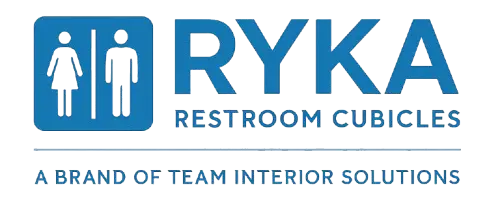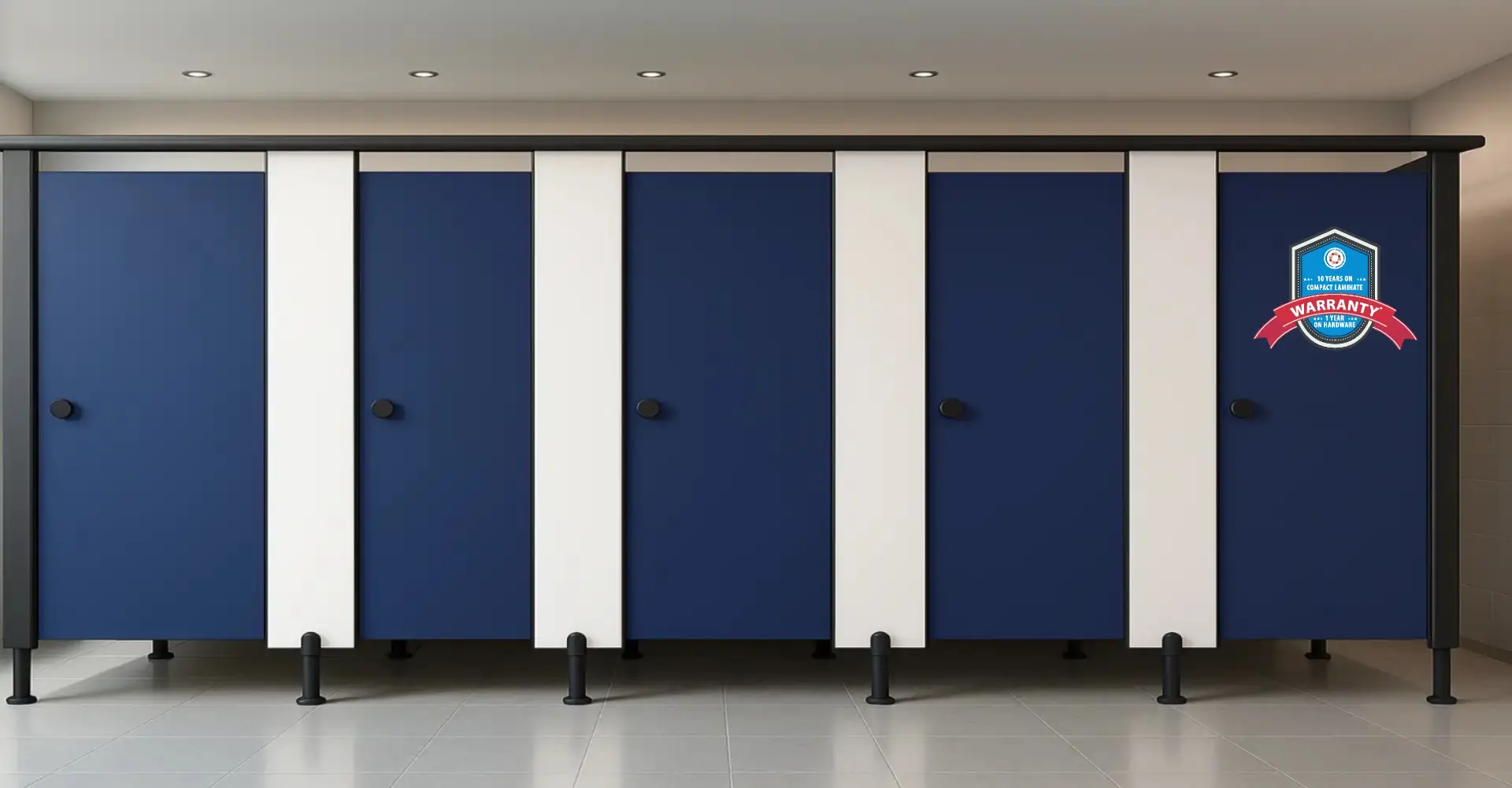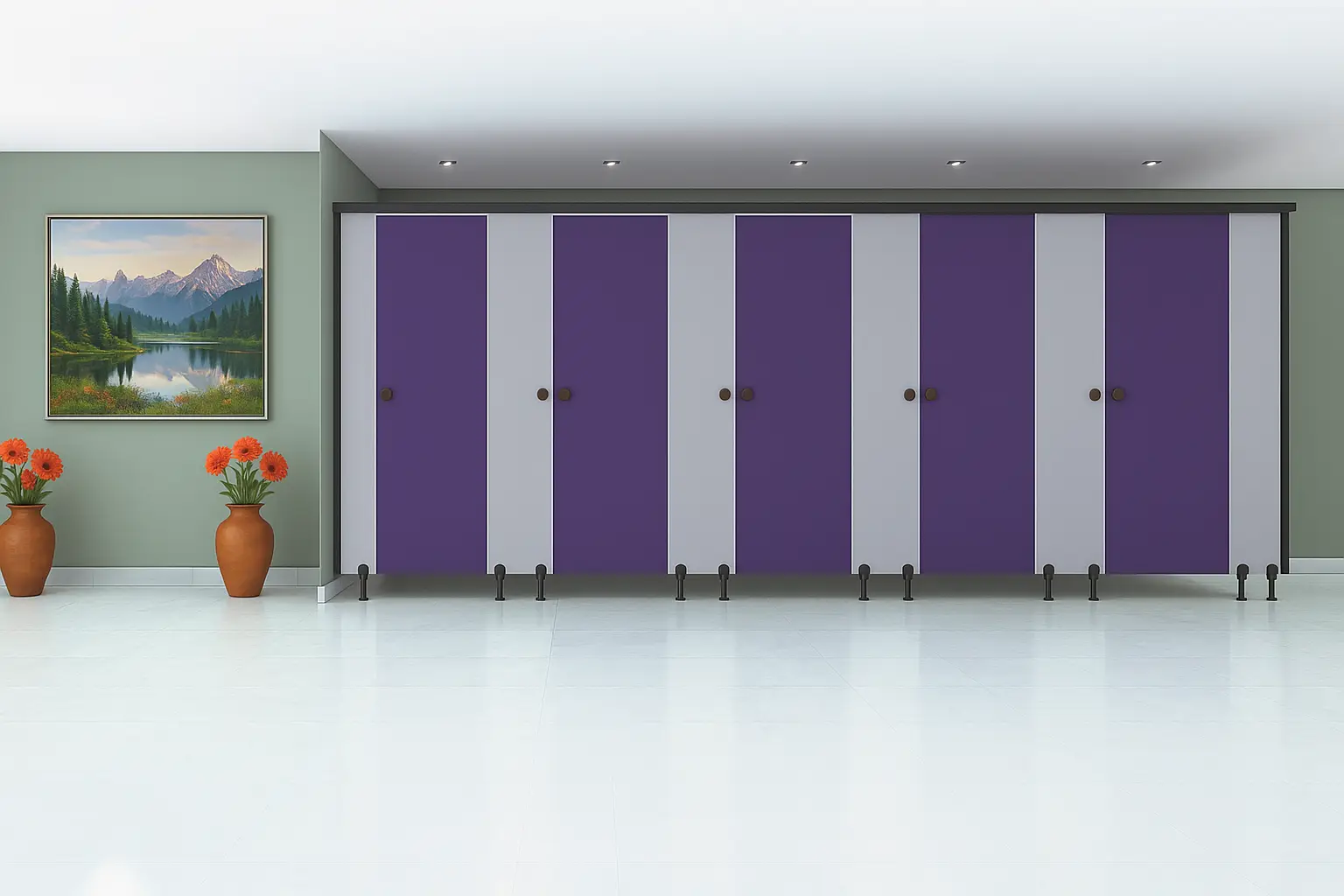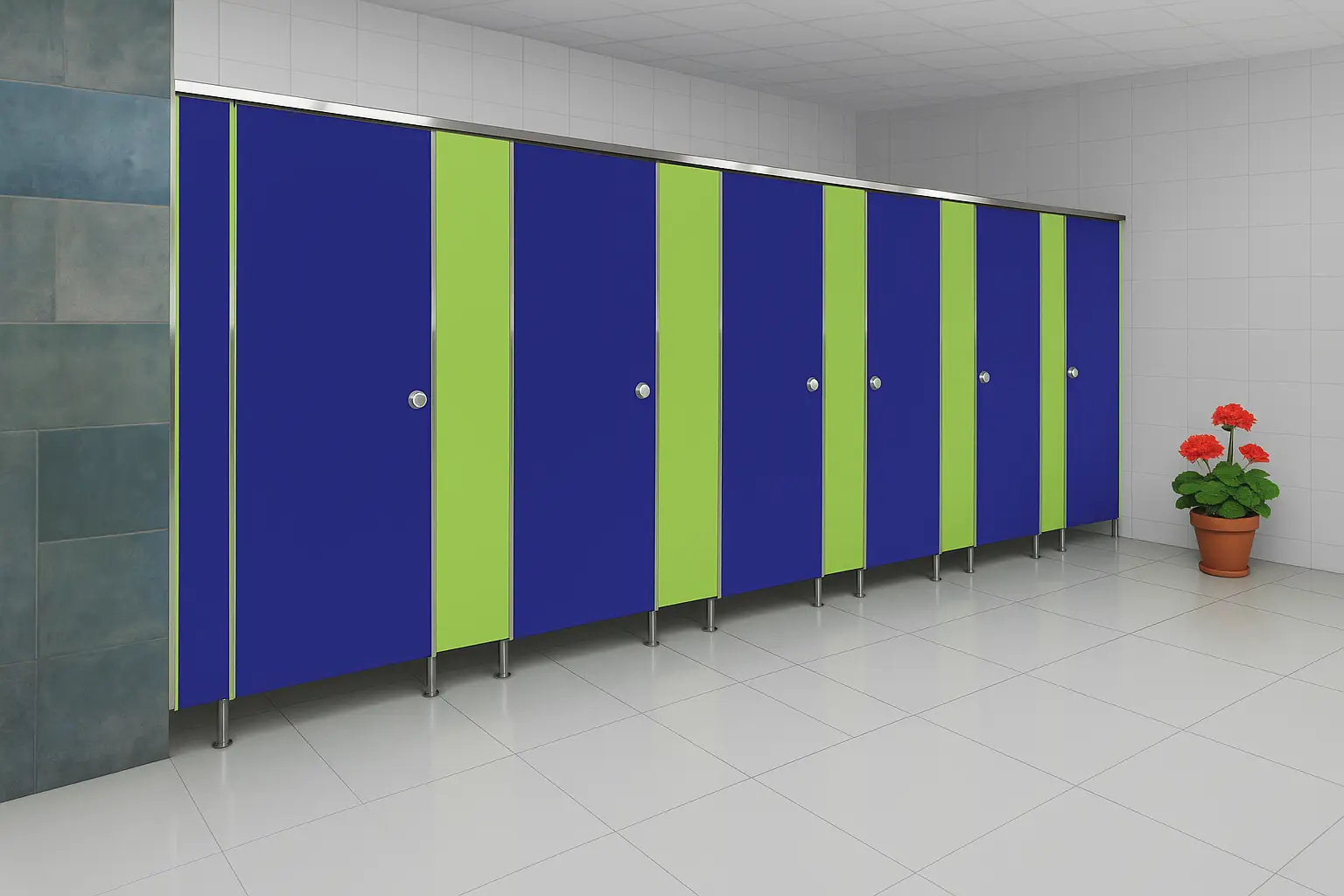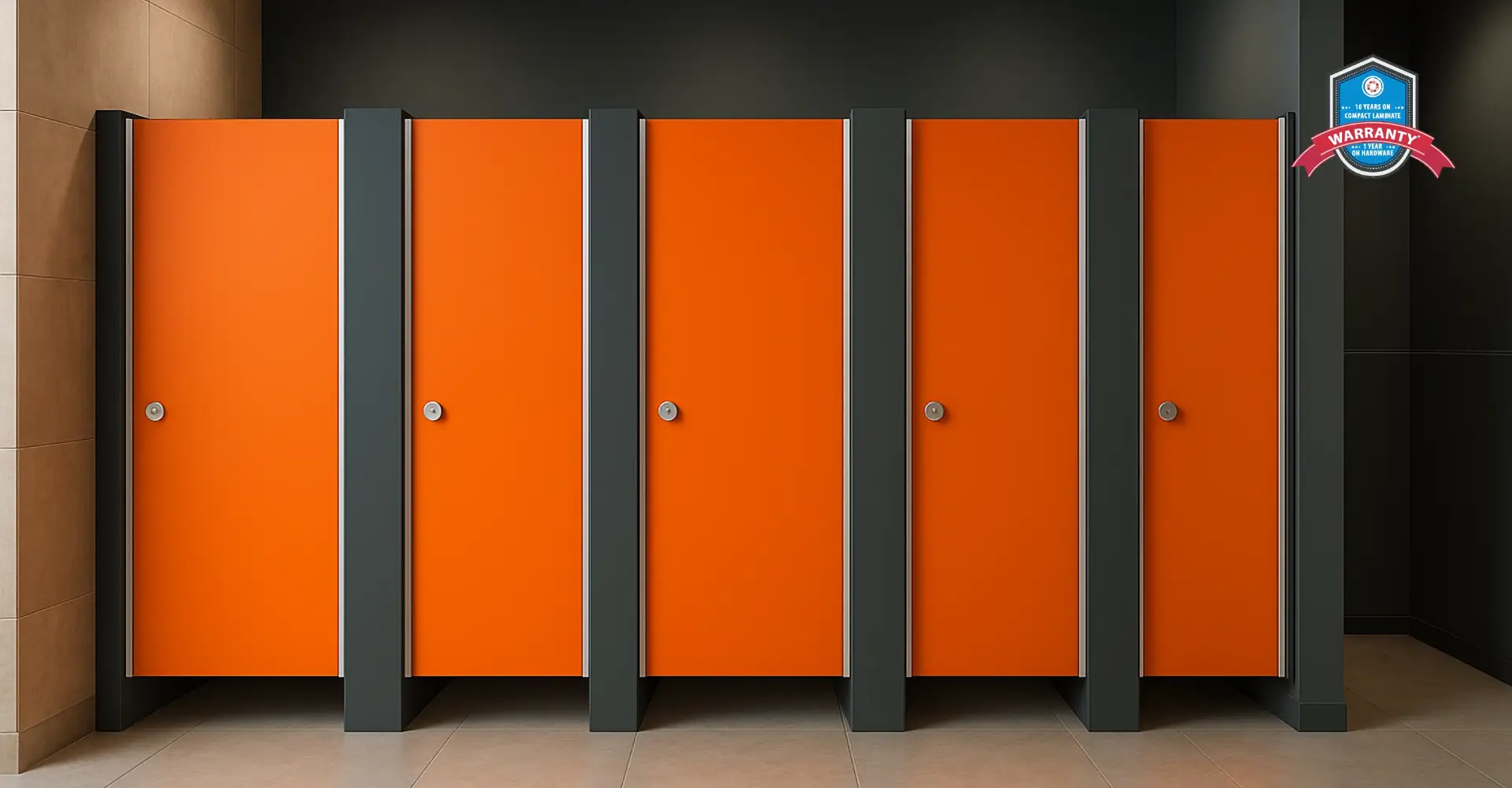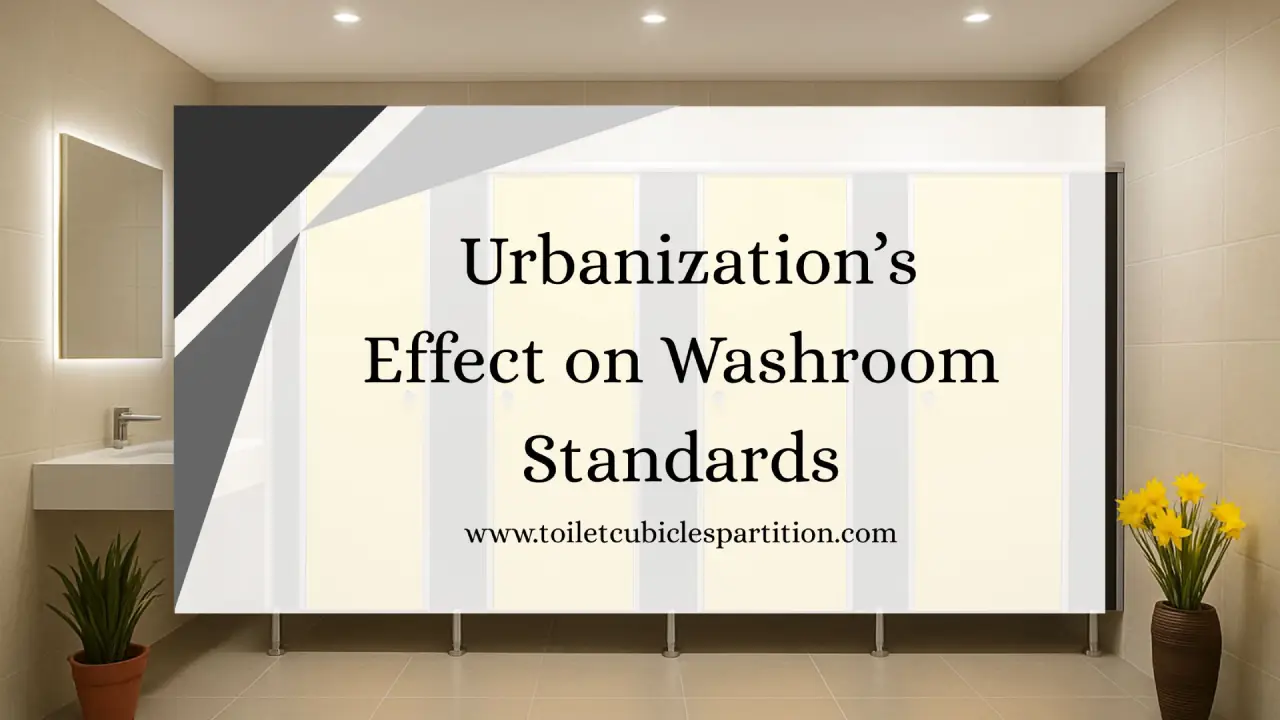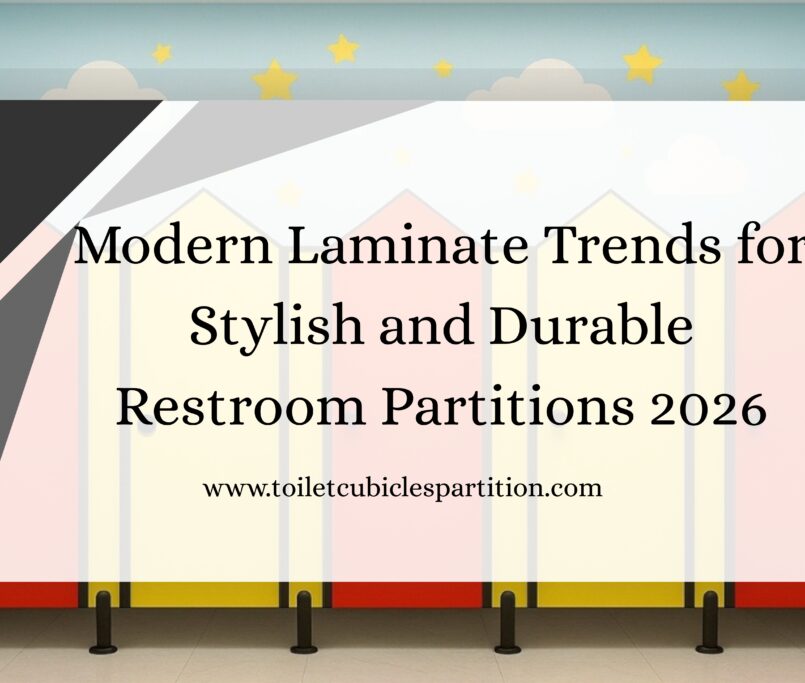Introduction: The Urbanization Wave and Its Impact on Washrooms
The world is urbanizing at an unprecedented pace. According to UN reports, by 2050 nearly 70% of the global population will live in cities. India, one of the fastest-growing urban economies, is witnessing the rise of smart cities, mega-malls, IT parks, co-working hubs, and transport infrastructure. While urbanization brings economic growth and modernization, it also creates new challenges—particularly in public infrastructure and hygiene standards.
Washrooms, once overlooked as secondary facilities, have now become indicators of urban sophistication and quality of life. A poorly designed restroom in a high-end mall or an IT park doesn’t just inconvenience people—it diminishes the brand image of the entire establishment. This is where Toilet Cubicle Partition Manufacturer like Ryka Restroom Cubicles play a crucial role.
In this blog, we will explore in detail how urbanization is reshaping washroom standards, the rising expectations of users, and how modern restroom partition systems are helping cities adapt to the challenges of density, hygiene, inclusivity, and sustainability.
1. The Urbanization Boom and Its Impact on Public Infrastructure
Cities are evolving rapidly. Malls are growing bigger, airports are busier, and offices are becoming more collaborative. With millions of people moving through urban facilities daily, washrooms must scale up to handle higher traffic while maintaining cleanliness, privacy, and efficiency.
In the past, restrooms were designed with minimal thought—often cramped, poorly ventilated, and hard to maintain. But today, they are strategic assets:
- Airports like Delhi T3 or Mumbai T2 have international standard washrooms with premium cubicles and touchless fixtures.
- Malls integrate designer cubicles and vanity areas to match their luxury branding.
- Corporate offices invest in modern restroom partitions to enhance employee comfort and productivity.
Urbanization, therefore, is pushing cities to demand future-ready washroom designs.
2. Hygiene Expectations in Densely Populated Areas
Hygiene has become the top priority in urban washrooms, especially after the COVID-19 pandemic highlighted the importance of sanitization. In a city where thousands use the same restroom daily, surfaces must resist bacterial growth and allow quick cleaning.
Here’s where compact laminate and phenolic core cubicles become essential:
- Non-porous surfaces that don’t absorb moisture or bacteria.
- Easy-to-clean materials that withstand aggressive cleaning chemicals.
- Antibacterial finishes to minimize contamination risks.
For example, metro stations in Bengaluru and Delhi have adopted phenolic core partitions to cope with daily heavy traffic while maintaining hygiene.
3. Space Optimization in High-Density Buildings
Urban land is expensive. Every square foot counts. In such high-density projects, washrooms must offer privacy without occupying unnecessary space.
Modern cubicle partitions help by:
- Creating compact, modular layouts that fit even in tight building plans.
- Offering slim yet sturdy designs, maximizing usable area.
- Supporting floor-to-ceiling customization for privacy in smaller spaces.
Take co-working spaces in Gurugram, for instance—they adopt modular cubicles that accommodate more users without compromising comfort.
4. The Role of Modern Materials in Urban Washrooms
One of the most significant upgrades in restroom standards comes from material innovation.
- Compact Laminate: Stylish, versatile, available in multiple finishes. Perfect for offices, malls, hotels where aesthetics matter.
- Phenolic Core: High-density, waterproof, vandal-resistant. Ideal for airports, gyms, and railway stations.
- Sustainable Panels: Increasingly used in green building projects, ensuring eco-friendly construction.
These materials withstand the urban challenge of heavy footfall and constant use while providing durability and design flexibility.
5. Sustainability: A Core Urban Priority
With cities embracing sustainability goals and green certifications (LEED, GRIHA, IGBC), restroom design is no exception.
Sustainable washroom standards include:
- Eco-friendly cubicle materials made from recyclable sources.
- Water-saving fixtures paired with modern partition layouts.
- Energy-efficient lighting and ventilation integrated with cubicle designs.
At Ryka Restroom Cubicles, sustainability is a non-negotiable principle—ensuring urban projects can meet both functionality and eco-friendly commitments.
6. Privacy & Inclusivity in Modern Urban Washrooms
Modern cities celebrate diversity. Washrooms, therefore, must be inclusive and accessible to all.
Key inclusivity standards shaped by urbanization:
- Gender-neutral washrooms in IT parks, schools, and malls.
- Accessible cubicles with larger dimensions for differently-abled users.
- Family-friendly restrooms with baby-changing facilities.
- Full-height partitions and soundproofing for complete privacy.
This inclusivity shift isn’t just a luxury—it’s becoming mandatory in smart urban projects.
7. Smart Washroom Technology in Urban Centers
Technology is transforming every part of urban life—and washrooms are no exception. Smart restroom solutions are now integrated into modern cubicle systems.
Examples include:
- IoT-powered occupancy sensors to reduce wait times.
- Automated cleaning alerts triggered by usage counts.
- Smart ventilation and lighting linked with cubicle partitions.
- Mobile-enabled feedback systems for maintenance monitoring.
Airports, smart city metro stations, and luxury malls in India are already adopting these solutions—making restroom cubicles part of the digital ecosystem.
8. Case Studies: Urban Projects Raising the Bar
To understand how urbanization drives change, let’s look at real-world examples:
- Bengaluru Tech Parks → Installed phenolic core partitions for durability in IT hubs with 24/7 usage.
- Luxury Malls in Delhi → Used compact laminate partitions with designer finishes to match premium interiors.
- Ahmedabad Metro → Adopted vandal-resistant cubicles for long-lasting, low-maintenance operation.
These case studies prove that urban facilities are no longer satisfied with outdated washrooms—they demand international-standard cubicles.
9. Long-Term ROI of Premium Cubicle Partitions
Urban developers often hesitate to invest in premium restroom partitions, considering them expensive. But the long-term ROI is undeniable:
- Reduced Maintenance Costs → Durable partitions require fewer repairs.
- Longer Lifespan → Materials like phenolic core last 15–20 years.
- Enhanced Brand Image → A clean, private, modern restroom builds trust.
- Higher User Satisfaction → Employees, customers, and visitors prefer high-standard washrooms.
In short, premium cubicles are not an expense—they’re an investment in urban infrastructure quality.
10. The Future of Washroom Standards in Urban India
Looking ahead, washrooms will continue to evolve with urbanization. We can expect:
- AI-driven cleaning and monitoring systems.
- Zero-touch cubicles for ultimate hygiene.
- Sustainable, recyclable panels becoming the norm.
- Universal inclusivity—no project will ignore accessibility.
Urban washrooms will no longer be back-end facilities; they will be flagship experiences for malls, airports, and office spaces.
Conclusion: Ryka Restroom Cubicles Leading the Change
Urbanization is not slowing down. As cities grow taller and denser, washrooms must adapt to higher expectations of hygiene, privacy, and sustainability.
Ryka Restroom Cubicles, as a leading Toilet Cubicle Partition Manufacturer, is proud to support urban infrastructure by delivering compact laminate and phenolic core cubicle solutions that are:
- Durable
- Hygienic
- Stylish
- Sustainable
- Future-ready
With the right design, material, and innovation, washrooms will no longer be overlooked spaces—they will be symbols of urban progress and modern living.
